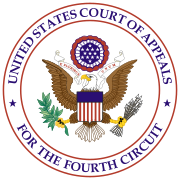Perpetual Real Estate Services, Inc. v. Michaelson Properties, Inc.
| Perpetual Real Estate Services, Inc. v. Michaelson Properties, Inc. | |
|---|---|
 | |
| Court | United States Court of Appeals for the Fourth Circuit |
| Citation | 974 F.2d 545 (4th Cir. 1992) |
| Case opinions | |
| Wilkinson J | |
| Keywords | |
| Legal person, limited liability | |
Perpetual Real Estate Services, Inc. v. Michaelson Properties, Inc. 974 F.2d 545 (4th Cir. 1992) is a US corporate law case, concerning piercing the corporate veil.
Facts
Aaron Michaelson formed Michaelson Properties, Inc in 1981. Aaron was the sole shareholder and the corporation's president. It was a business for real estate joint ventures. It entered a joint venture with Perpetual Real Estates (forming a partnership called "Arlington Apartment Associates") to build condominiums. As they were building, further finance was needed. Michaelson Properties Inc could not put up its share, so Perpetual loaned it $1.05m, and got a personal guarantee from Aaron. The apartments did not turn out to be built that well. Purchasers sued the partnership successfully for $950,000. Perpetual Real Estates paid it off on the partnership's behalf. Then they sought Michaelson Properties Inc to contribute its share. It did not have the money, and went bust. So they sued Aaron to pay. He argued that Michaelson Properties, Inc was a separate legal person to him, and it was inappropriate to pierce the corporate veil.
At first instance the jury held Aaron should pay. Aaron appealed.
Judgment
Wilkinson J noted that Virginia law had assiduously upheld the "vital economic policy" of respecting a corporation as a separate legal entity, since it underpinned the operation of vast enterprises. He emphasised that the veil would only be lifted where a defendant exercises "undue domination and control" and uses the corporation as "a device or sham... to disguise wrongs, obscure fraud, or conceal crime."[1] He said the description of the law which the jury had heard was in a "rather soggy state" and emphasised that it was not enough that "an injustice or fundamental unfairness" would be perpetrated. "The fact," he continued,
that limited liability might yield results that seem "unfair" to jurors unfamiliar with the function of the corporate form cannot provide a basis for piercing the veil.
Because there was no evidence that Aaron was attempting to defraud anybody, the veil could not be lifted. There was no "unfair siphoning of funds" when Aaron paid himself a dividend, because distribution was entirely foreseeable when the money was given, and the distribution happened well before any suit was filed. The fact that Aaron had given personal guarantees strengthened the corporate veil presumption, because the transactions recognised it existed.
Cited cases
- Cheatle v. Rudd's Swimming Pool Supply Co., 234 Ca. 207, 360 S.E.2d 828 (1987)
- Beale v. Kappa Alpha Order, 192 Ca. 382, 64 S.E2d 789 (1951)
- Anderson v. Abbott, 321 U.S. 349 (1944)
- Dwitt Truck Brokers, Inc. v. W. Ray Flemming Fruit Co., 540 F.2d 681 (4th Cir. 1976)
- Cunningham v. Rendezvous, Inc. 699 F.2d 676 (4th Cir. 1983)
- United States v. Jon-T Chemicals, Inc. 768 F.2d 686 (5th Cir. 1985)
- United Paperworkers Int'l Union v. Penntech Papers, Inc., 439 F. Supp. 610 (D. Me. 1977)
- Aronson v. Price 644, N.E.2d 864 (Ind. 1964) a plaintiff brought his car for repair to "Corbett's Body Shop" which did not indicate its corporate status.
- Interocean Shipping Co. v. National Shipping & Trading Corp., 523 F.2d 527 (2d Cir. 1975), conduct akin to fraud required to pierce the veil in contract cases
See also
Notes
- ^ citing Beale and Cheatle
References
External links
- District court opinion, 775 F.Supp. 893 (1991).
- Court of Appeals opinion, 974 F.2d 545 (1992).
